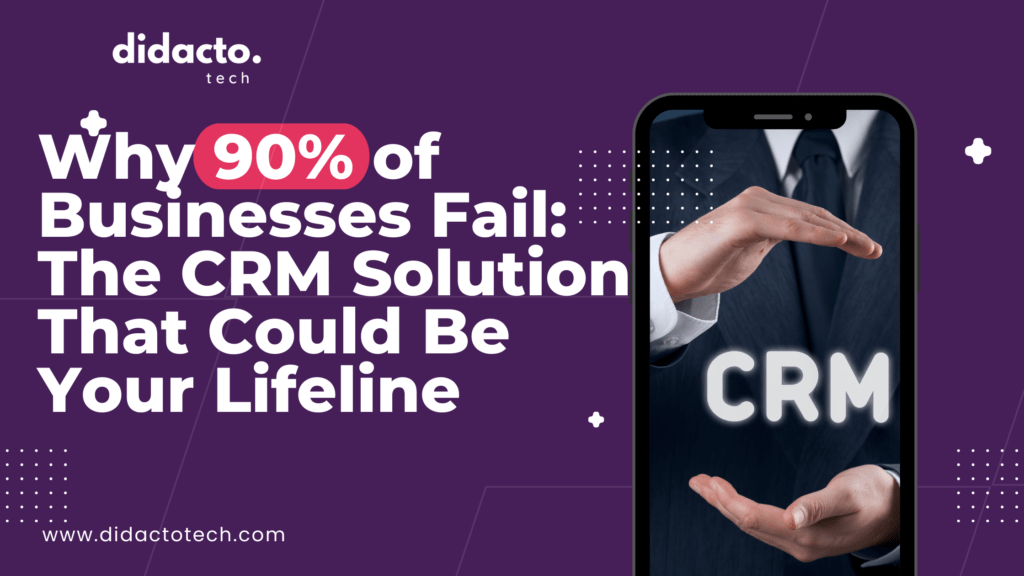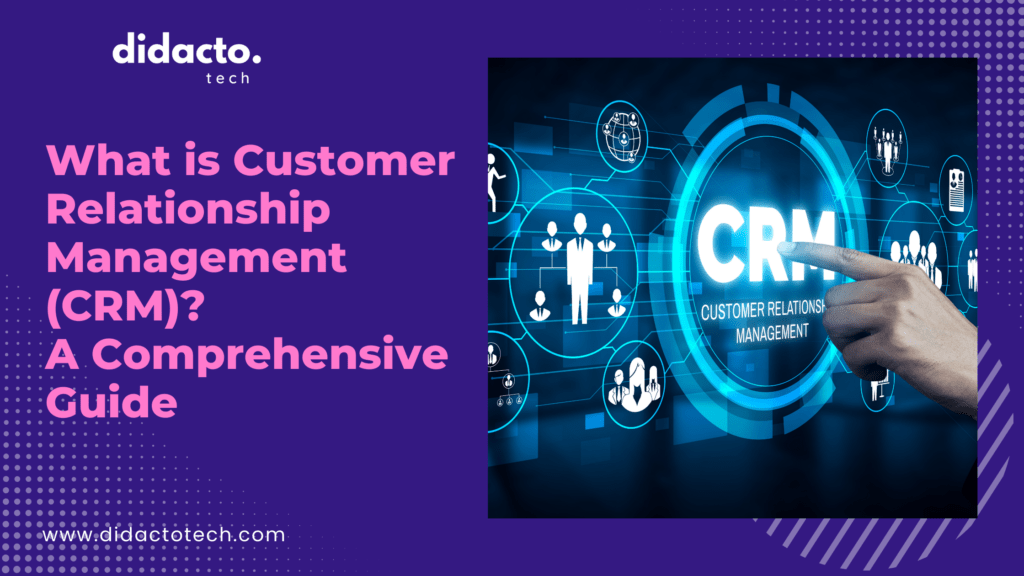Table of Contents
Introduction
Starting a business is an exciting venture, but the harsh reality is that approximately 90% of businesses fail within their first few years. This statistic is sobering, but it doesn’t have to be your story. In this article, we’ll explore the reasons behind this high failure rate and how Customer Relationship Management (CRM) software can be a game-changer for your business’s survival and success.
Common Reasons for Business Failure
Before we dive into the solution, let’s examine why so many businesses don’t make it past their early stages:
- Poor Market Research: Many entrepreneurs jump into business without thoroughly understanding their target market, leading to products or services that don’t meet customer needs.
- Inadequate Financial Management: Cash flow problems, overspending, and lack of financial planning can quickly sink a new business.
- Ineffective Marketing: Without a solid marketing strategy, businesses struggle to attract and retain customers.
- Lack of Adaptability: Failing to adapt to changing market conditions or customer preferences can leave a business obsolete.
- Poor Customer Relationships: Neglecting customer needs and feedback can result in lost business and a damaged reputation.
- Inefficient Operations: Disorganized processes and lack of streamlined systems can lead to wasted time and resources.
The Role of Customer Relationship Management
Customer Relationship Management is a strategy that focuses on building and maintaining strong relationships with customers. It involves:
- Understanding customer needs and preferences
- Providing excellent customer service
- Personalizing interactions and offerings
- Tracking customer interactions and history
- Analyzing customer data to improve business decisions
Effective CRM can address many of the issues that lead to business failure. By prioritizing customer relationships, businesses can:
- Increase customer retention and loyalty
- Improve customer satisfaction
- Boost sales and revenue
- Make more informed business decisions
How CRM Software Can Help Your Business Survive
CRM software is a powerful tool that can help businesses implement effective customer relationship management strategies. Here’s how it can address the common reasons for business failure:
- Improved Market Understanding
CRM software allows you to collect and analyze customer data, giving you insights into your target market’s preferences and behaviors. This information can help you tailor your products or services to better meet customer needs.
- Better Financial Management
By tracking sales, customer interactions, and marketing efforts, CRM software can help you identify which strategies are most cost-effective and yield the best results. This can lead to more efficient allocation of resources and improved financial planning.
- Enhanced Marketing Efforts
CRM systems often include marketing automation features, allowing you to create targeted campaigns based on customer data. This can lead to more effective marketing and higher conversion rates.
- Increased Adaptability
With real-time data and analytics, CRM software can help you identify trends and changes in customer behavior quickly. This allows you to adapt your strategies and offerings more effectively.
- Stronger Customer Relationships
CRM software centralizes customer information, making it easier to provide personalized service and maintain consistent communication across all touchpoints.
- Streamlined Operations
By automating many customer-related tasks and providing a central hub for customer information, CRM software can significantly improve operational efficiency.
Choosing the Right CRM Solution
Selecting the right CRM software for your business is crucial. Consider the following factors:
- Scalability: Choose a solution that can grow with your business.
- Integration: Ensure the CRM can integrate with your existing tools and systems.
- User-Friendliness: Look for an intuitive interface that your team can easily adopt.
- Customization: The ability to tailor the CRM to your specific needs is important.
- Mobile Access: In today’s mobile world, having access to your CRM on-the-go is essential.
- Cost: Consider both the initial investment and long-term costs.
Some popular CRM solutions to consider include:
Implementing CRM Successfully
Implementing a CRM system successfully requires more than just purchasing the software. Follow these steps for a smooth adoption:
- Define Clear Objectives: Determine what you want to achieve with your CRM system.
- Get Buy-In from Your Team: Ensure all employees understand the benefits and are on board with using the new system.
- Clean and Organize Your Data: Before migrating to the new system, clean up your existing customer data.
- Provide Thorough Training: Offer comprehensive training to all users to ensure they can use the CRM effectively.
- Start Small and Scale: Begin with core features and gradually expand usage as your team becomes more comfortable.
- Regularly Review and Optimize: Continuously evaluate how the CRM is being used and make adjustments as needed.
Conclusion
While the statistic that 90% of businesses fail may be daunting, it doesn’t have to be your reality. By understanding the common pitfalls and leveraging the power of Customer Relationship Management software, you can position your business for long-term success.
CRM software offers a comprehensive solution to many of the challenges that lead to business failure. It can help you understand your market better, manage your finances more effectively, improve your marketing efforts, adapt to changes quickly, build stronger customer relationships, and streamline your operations.
Remember, implementing a CRM system is not just about adopting new technology – it’s about embracing a customer-centric approach to business. By putting your customers at the heart of everything you do, you’ll be well on your way to beating the odds and building a thriving, sustainable business.
Are you ready to take the next step in securing your business’s future? Start exploring CRM solutions today and see how they can transform your customer relationships and overall business success.



